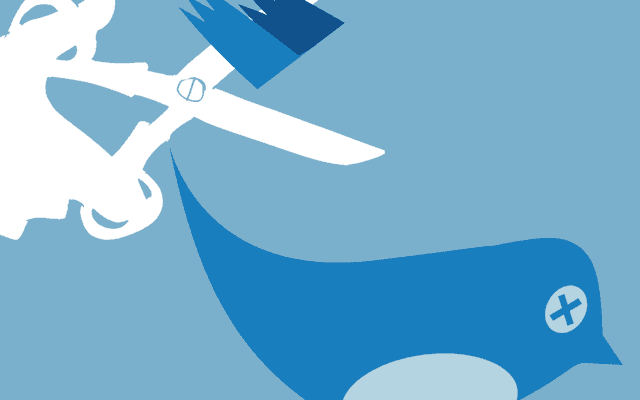
The Iranian regime Foreign Minister demands Twitter, to close down opposition accounts in Tirana in a bid to silence the voice of protesters in Iran that want Regime Change in the country.
The mullahs have suffered critical defeats on several fronts in their attempt to maintain their grip on power in Iran. The domestic landscape is becoming more turbulent, and their position in power becomes more precarious with each passing day as each revelation sheds more light on the mullahs’ reign of terror.
The economic crisis has sparked unrest, leading to protestors calling for Khamenei and Rouhani’s death in the streets. Abroad, the reintroduction of sanctions is hitting the regime’s oil profits, and digital giants like Twitter, Facebook, and Google are closing down the regime’s fake profiles spouting pro-regime propaganda.
A Step Too Far
The closure of the mullahs’ social media accounts came after US firm, FireEye, identified a network of suspicious accounts sharing posts from Iranian state-run accounts.
After careful investigation, FireEye concluded that the Iranian regime had established an elaborate network of fake profiles which it used to spread anti-Trump messages within the US. For the US-based social media companies, this was a step too far, and it took the decision to close the fake accounts associated with the campaign.
The bulk of the Iranian regime’s activities were centered around criticizing Trump’s decision to withdraw the Iranian nuclear deal, and its subsequent decision to reimpose sanctions against Iran.
Out of Ideas
When Twitter and Facebook forced the closure of the accounts, Iranian regime Foreign Minister, Mohammad Javad Zarif claimed that the tech giants were unjustly censoring innocent Iranians. He appealed to Twitter CEO, Jack Dorsey, in a tweet, urging him to reinstate the accounts and investigate the main Iranian opposition group, MEK’s activists calling for regime change instead.
https://twitter.com/HeshmatAlavi/status/1035576415180210178
His tweet reads like a man without any ideas frantically trying to deflect attention from his own nefarious activities, onto his rivals. Zarif appealed to Dorsey to investigate tweets coming out of Tirana, the capital of Albania where many members of the People’s Mujahedin Organization of Iran (MEK) live in exile.
This was his latest attempt to accuse others of the crimes his regime has widely committed. In the past, he has accused Israel and Saudi Arabia, among other opposition groups, including the MEK, of being behind campaigns on social media calling for regime change in Iran.
Controlling the Narrative
Zarif’s appeal to Dorsey on Twitter while it demonstrates the weak and fragile status of the regime, which feels so vulnerable that it’s Foreign Minister has to appeal to Twitter for the closure of the opposition accounts. It also fits with the regime’s wider ambitions of controlling the narrative, both within Iran and abroad. Within Iran, the regime works tirelessly to block Iranians’ access to the wider world. A firewall is in operation, and many are forced to use VPN software to access the international media.
Inside Iran, the regime stifles free speech with torture/executions. Now its Foreign Minister is asking @Twitter to silence its opponents too. The mullahs want to censor scenes of the #IranProtests on social media. Don't help the dictator @jack#FreeIran2018 https://t.co/B0F2pgm0aK
— M. Hanif Jazayeri (@HanifJazayeri) September 17, 2018
It also recently closed down a national newspaper after it published remarks critical of the regime. The regime accused the newspaper of insulting Imam Hussein, the Prophet Muhammad’s grandson. The article cited was about gender reassignment surgery.
Outside Iran, the regime has attempted to publicly discredit opposition groups like the MEK and the National Council of Resistance of Iran (NCRI). It has coordinated smear campaigns against the groups, their members, and their leader, Maryam Rajavi.
Part of this is to attack opposition groups and shore up power, but the mullahs are also anxious not to let details of their human rights abuses and crimes against humanity be revealed to the international community.
Incidents like the public flogging of journalists, the execution of political dissidents, and the massacre of MEK members in 1988 are among those that the mullahs want to keep under wraps.
The mullahs believe that by controlling the narrative, they can maintain their grip on power. But this strategy is unraveling.
The decision by Facebook and Twitter to close the regime-affiliated fake social media accounts demonstrates that the international tech community will not tolerate it. The Iranian people demonstrating in the streets calling for regime change shows that the people will not tolerate it, and the decision from Trump to reimpose sanctions against the regime shows that governments in the West will not tolerate it.
On this front, the regime is losing. But it is not going down without a fight. Following Zarif’s plea to Dorsey, Al-Jazeera, the Head of the National Iranian American Council, and New America, all released statements echoing Zarif’s talking points.
The mullahs have mobilized all the support they can muster. However, it is unlikely to be enough. The closure of its social media accounts is likely to be a defining moment in the demise of the Irian regime. The regime is losing control of the narrative and with it, it is losing control of the country.
staff Writer
